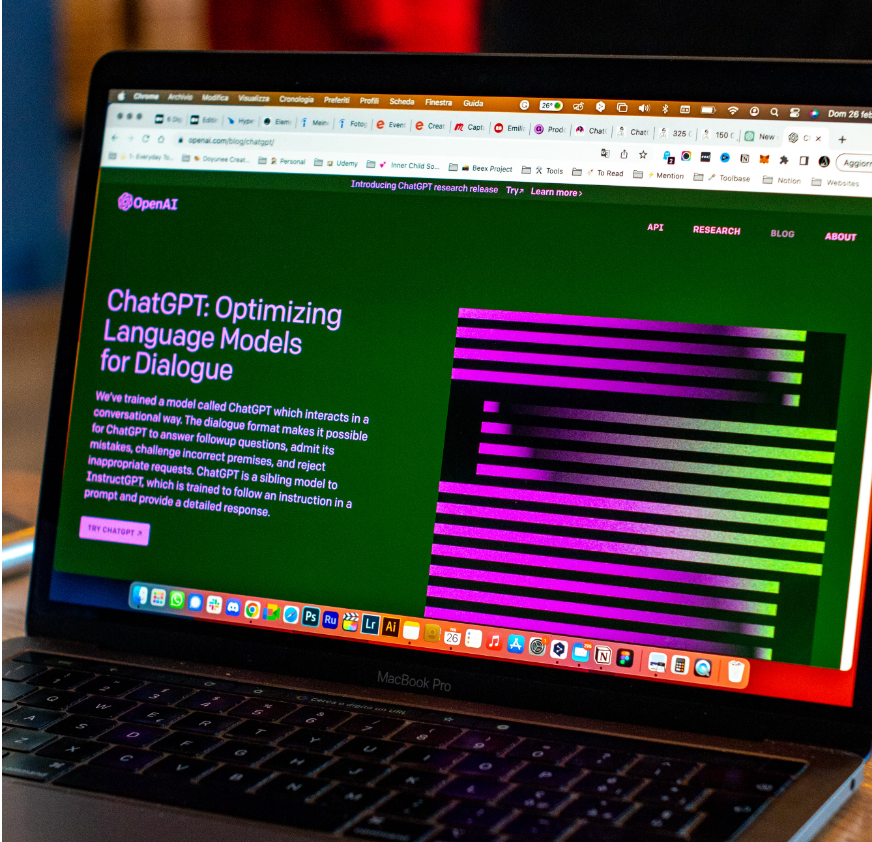News
Article
AI Feeds People Incorrect Ophthalmology Information
Author(s):
ChatGPT, Google Bard, and Bing Chat struggle with recommending practicing nearby ophthalmologists and disproportionate against females.
Credit: Unsplash

People should be aware of using platforms like ChatGPT, Google Bard, or Bing Chat in lieu of seeking a medical professional for advice as it feeds incorrect ophthalmology information, according to an American Academy of Ophthalmology press release. The study was presented at AAO 2023, the 127th annual meeting of the American Academy of Ophthalmology.
In the past year, AI has been growing in prevalence, making information readily accessible and serving as an educational resource, but AI platforms do not have enough knowledge about eye medical information to provide accurate answers. Ophthalmologists tested several AI platforms’ ability to answer eye medical questions. The doctors discovered many of the responses were inaccurate and held significant bias against female ophthalmologists.
“Relying on online tools for quick advice may be tempting, but we urge the public to remember that this is not a replacement for a comprehensive eye exam with an ophthalmologist,” said Sandy Zhang-Nunes, MD, associate professor of clinical ophthalmology and director of oculofacial plastic surgery at the University of Southern California in a press release. “Seeing a medical doctor for preventative exams and examining any sudden change in vision is the best way to protect your eye health.”
Due to Ophthalmology’s inaccurate information, the doctors worried that AI chatbots may further delay treatment and put patients at an increased risk for vision loss.
The ophthalmologists in the study compared the ability of 3 programs—ChatGPT, Google Bard, and Bing Chat—on how they answer common patient questions and create educational resources. The ophthalmologist also asked the AI platforms to recommend ophthalmologists practicing in the 20 largest cities in the United States. The ophthalmologist ranked the answers on a scale of 1 to 4.
Google Bard provided the highest quality and accuracy of responses to patient questions, receiving a ranking of 2.3 out of 4. Though, ChatGPT scored the highest for patient educational resources with a ranking of 3 out of 4.
ChatGPT, Google Bard, and Bing Chat all did poorly on recommending practicing ophthalmologists or to locate ophthalmologists in or near a particular city. Not only that but Google Bard and Bing Chat recommended female ophthalmologists less than 2% of the time, despite 27% of the United States’ ophthalmologists being women.
“Given the substantial bias and inaccuracy demonstrated in this study, we warn against reliance on AI chatbots when seeking health-related information until improvements in algorithms are achieved and validated in the future,” the investigator, Michael Oca, Bs of the University of California, San Diego, told the American Academy of Ophthalmology. “A poor recommendation from a chatbot could further delay a patient’s treatment.”
References
Beware of Dr. Chatbot: Generative AI often Gives Unreliable, Biased Medical Advice; 2023. https://www.aao.org/newsroom/news-releases/detail/beware-of-dr-chatbot-generative-ai-advice#:~:text=%E2%80%9CGiven%20the%20substantial%20bias%20and,University%20of%20California%2C%20San%20Diego. Assessed November 3, 2023.




